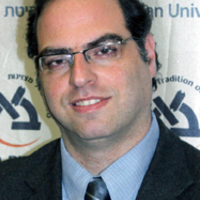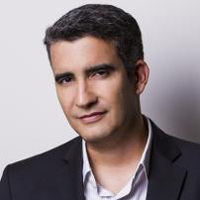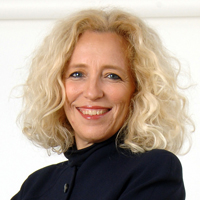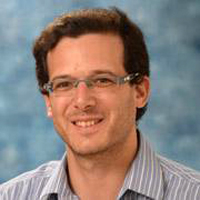Message From Our President

Dear Students, Faculty, Staff and Friends,
I am pleased to present to you this Guide to our plans for the upcoming fall semester and reopening of our campuses. In form and in content, this coming semester will be like no other. We will live differently, work differently and learn differently. But in its very difference rests its enormous power.
The mission of Yeshiva University is to enrich the moral, intellectual and spiritual development of each of our students, empowering them with the knowledge and abilities to become people of impact and leaders of tomorrow. Next year’s studies will be especially instrumental in shaping the course of our students’ lives. Character is formed and developed in times of deep adversity. This is the kind of teachable moment that Yeshiva University was made for. As such, we have developed an educational plan for next year that features a high-quality student experience and prioritizes personal growth during this Coronavirus era. Our students will be able to work through the difficulties, issues and opportunities posed by our COVID-19 era with our stellar rabbis and faculty, as well as their close friends and peers at Yeshiva.
To develop our plans for the fall, we have convened a Scenario Planning Task Force made up of representatives across the major areas of our campus. Their planning has been guided by the latest medical information, government directives, direct input from our rabbis, faculty and students, and best practices from industry and university leaders across the country. I am deeply thankful to our task force members and all who supported them for their tireless work in addressing the myriad details involved in bringing students back to campus and restarting our educational enterprise.
In concert with the recommendations from our task force, I am announcing today that our fall semester will reflect a hybrid model. It will allow many students to return in a careful way by incorporating online and virtual learning with on-campus classroom instruction. It also enables students who prefer to not be on campus to have a rich student experience by continuing their studies online and benefitting from a full range of online student services and extracurricular programs.
In bringing our students back to campus, safety is our first priority. Many aspects of campus life will change for this coming semester. Gatherings will be limited, larger courses will move completely online. Throughout campus everyone will need to adhere to our medical guidelines, including social distancing, wearing facemasks, and our testing and contact tracing policies. Due to our focus on minimizing risk, our undergraduate students will begin the first few weeks of the fall semester online and move onto the campus after the Jewish holidays. This schedule will limit the amount of back and forth travel for our students by concentrating the on-campus component of the fall semester to one consecutive segment.
Throughout our planning, we have used the analogy of a dimmer switch. Reopening our campuses will not be a simple binary, like an on/off light switch, but more like a dimmer in which we have the flexibility to scale backwards and forwards to properly respond as the health situation evolves. It is very possible that some plans could change, depending upon the progression of the virus and/or applicable state and local government guidance.
Before our semester begins, we will provide more updates reflecting our most current guidance. Please check our website, yu.edu/fall2020 for regular updates. We understand that even after reading through this guide, you might have many additional questions, so we will be posting an extensive FAQ section online as well. Additionally, we will also be holding community calls for faculty, students, staff and parents over the next couple of months.
Planning for the future during this moment has certainly been humbling. This Coronavirus has reminded us time and time again of the lessons from our Jewish tradition that we are not in full control of our circumstances. But our tradition also teaches us that we are in control of our response to our circumstances. Next semester will present significant challenges and changes. There will be some compromises and minor inconveniences--not every issue has a perfect solution. But faith and fortitude, mutual cooperation and resilience are essential life lessons that are accentuated during this period. And if we all commit to respond with graciousness, kindness, and love, we can transform new campus realities into profound life lessons for our future.
Deeply rooted in our Jewish values and forward focused in preparing for the careers and competencies of the future, we journey together with you, our Yeshiva University community, through these uncharted waters. Next year will be a formative year in the lives of our students, and together we will rise to the moment so that our students will emerge stronger and better prepared to be leaders of the world of tomorrow.
Best Wishes,
Ari Berman

 Dr. Barak Cohen is currently a senior lecturer in Jewish studies at Bar-Ilan University, with interests in legal interpretation and decision-making in the Babylonian Talmud. His academic work also addresses historical aspects of the Jews in Babylonia, such as the history of the schools, source of early legal traditions, the chronology and hierarchical relationship among the Sages.
Dr. Cohen was born in Montreal in 1984 and made aliyah two years later. After finishing his military service, he enrolled in The Open University of Israel in Tel Aviv to pursue medicine.
But his medical studies took an unexpected turn when he met Dr. Meir Simcha Feldblum, a noted Talmudic scholar. Dr. Feldblum, who died in 2002, received both rabbinical ordination and a PhD from Yeshiva University, where he taught for over 20 years. He then made aliyah and taught at Bar-Ilan University for over 18 years.
Their conversations convinced Dr. Cohen to switch his focus from medicine to Jewish studies, leading to one degree in Jewish history and two more degrees in Talmud and rabbinics. “In Talmudic research, you try to understand and analyze how the main ideas of Judaism were created in ancient times. Reincarnation, angels, demons – who created them? This kind of research spoke to me, just as it speaks to many of the students who come to Bar-Ilan to study.”
Dr. Cohen first came to Yeshiva University in 2011 at the invitation of Dr. Yaakov Elman, who recently passed away, after Dr. Elman had read his 2011 book The Legal Methodology of Late Nehardean Sages in Sasanian Babylonia. Dr. Cohen returned in 2013 to teach again and had been in touch with Dr. Elman just before his death about his current sabbatical here.
“Teaching at YU is a special experience for me. At YU, I have a wider variety of students than in my classes in Bar-Ilan University, and it’s exciting to teach research methods to students of all types.”
This semester he is teaching a course at Bernard Revel School of Jewish Studies on “the intellectual history around the creation of law in early Judaism. How was law created? What is the relationship to Roman law in the eastern provinces?”
He also has other projects in the works. “One is dealing with mental illness in ancient society, a project being done with possible funding from the Israeli Science Foundation. In our research proposal, we claim that to understand this, we need to see it through their eyes, the eyes of the ancient society, and compare it to Roman law and medicine in ancient society. Dr. Steve Fine will be part of this research group, contributing his knowledge of archaeology and art in ancient history.”
Dr. Barak Cohen is currently a senior lecturer in Jewish studies at Bar-Ilan University, with interests in legal interpretation and decision-making in the Babylonian Talmud. His academic work also addresses historical aspects of the Jews in Babylonia, such as the history of the schools, source of early legal traditions, the chronology and hierarchical relationship among the Sages.
Dr. Cohen was born in Montreal in 1984 and made aliyah two years later. After finishing his military service, he enrolled in The Open University of Israel in Tel Aviv to pursue medicine.
But his medical studies took an unexpected turn when he met Dr. Meir Simcha Feldblum, a noted Talmudic scholar. Dr. Feldblum, who died in 2002, received both rabbinical ordination and a PhD from Yeshiva University, where he taught for over 20 years. He then made aliyah and taught at Bar-Ilan University for over 18 years.
Their conversations convinced Dr. Cohen to switch his focus from medicine to Jewish studies, leading to one degree in Jewish history and two more degrees in Talmud and rabbinics. “In Talmudic research, you try to understand and analyze how the main ideas of Judaism were created in ancient times. Reincarnation, angels, demons – who created them? This kind of research spoke to me, just as it speaks to many of the students who come to Bar-Ilan to study.”
Dr. Cohen first came to Yeshiva University in 2011 at the invitation of Dr. Yaakov Elman, who recently passed away, after Dr. Elman had read his 2011 book The Legal Methodology of Late Nehardean Sages in Sasanian Babylonia. Dr. Cohen returned in 2013 to teach again and had been in touch with Dr. Elman just before his death about his current sabbatical here.
“Teaching at YU is a special experience for me. At YU, I have a wider variety of students than in my classes in Bar-Ilan University, and it’s exciting to teach research methods to students of all types.”
This semester he is teaching a course at Bernard Revel School of Jewish Studies on “the intellectual history around the creation of law in early Judaism. How was law created? What is the relationship to Roman law in the eastern provinces?”
He also has other projects in the works. “One is dealing with mental illness in ancient society, a project being done with possible funding from the Israeli Science Foundation. In our research proposal, we claim that to understand this, we need to see it through their eyes, the eyes of the ancient society, and compare it to Roman law and medicine in ancient society. Dr. Steve Fine will be part of this research group, contributing his knowledge of archaeology and art in ancient history.”
 Dr. Harel Chorev-Halewa is the head of the Doron Halpern Middle East Network Analysis Desk of the Moshe Dayan Center for Middle Eastern and African Studies at Tel Aviv University. During the 2018-2019 academic year, he has taught two courses in the Yeshiva College political science department: Networks and Power in the Middle East in the fall semester and The Palestinian Century for the spring semester.
“I’m a historian, not a political scientist,” he explained, “but one area of expertise for me is implementing network theory in historical studies. This is an interdisciplinary field that developed in the last two or three decades and is a confluence of processes that come from social studies, biology, math and physics, making it useful for any kind of social studies, including political science.”
Dr. Chorev-Halewa describes network theory as a toolbox that “helps us understand very diversified phenomena, whether they take place in human societies or the brain. The logic that applies to a certain network—say, a social network—is basically the same logic, both with its strength and weaknesses, that applies to other kinds of networks as well. Networks are networks.”
As an example, he described how his doctoral dissertation used network theory in a comparative study of two Palestinian clans in the West Bank, and he showed how, as organizations, they were absolutely different in terms of goals, strategies and structures. “So, you can apply this toolbox to any contemporary research, including political science.”
In the course he is teaching this semester, The Palestinian Century, on the Wilf Campus, “I use network theory in part of the course to investigate topics like the coherence of the Palestinians as a people, their integration as a people, their ability to execute collective action.”
For Dr. Chorev-Halewa, coming to YU has something of an emotional charge to it. “I’ve known about YU for many years, and it’s been both fascinating to me and has made me feel very proud that there was this leading Jewish academic institution outside of Israel which is so prominent, distinguished and respected worldwide. All it took was a very kind invitation from the Provost to get me to spend part of my sabbatical here.”
Dr. Harel Chorev-Halewa is the head of the Doron Halpern Middle East Network Analysis Desk of the Moshe Dayan Center for Middle Eastern and African Studies at Tel Aviv University. During the 2018-2019 academic year, he has taught two courses in the Yeshiva College political science department: Networks and Power in the Middle East in the fall semester and The Palestinian Century for the spring semester.
“I’m a historian, not a political scientist,” he explained, “but one area of expertise for me is implementing network theory in historical studies. This is an interdisciplinary field that developed in the last two or three decades and is a confluence of processes that come from social studies, biology, math and physics, making it useful for any kind of social studies, including political science.”
Dr. Chorev-Halewa describes network theory as a toolbox that “helps us understand very diversified phenomena, whether they take place in human societies or the brain. The logic that applies to a certain network—say, a social network—is basically the same logic, both with its strength and weaknesses, that applies to other kinds of networks as well. Networks are networks.”
As an example, he described how his doctoral dissertation used network theory in a comparative study of two Palestinian clans in the West Bank, and he showed how, as organizations, they were absolutely different in terms of goals, strategies and structures. “So, you can apply this toolbox to any contemporary research, including political science.”
In the course he is teaching this semester, The Palestinian Century, on the Wilf Campus, “I use network theory in part of the course to investigate topics like the coherence of the Palestinians as a people, their integration as a people, their ability to execute collective action.”
For Dr. Chorev-Halewa, coming to YU has something of an emotional charge to it. “I’ve known about YU for many years, and it’s been both fascinating to me and has made me feel very proud that there was this leading Jewish academic institution outside of Israel which is so prominent, distinguished and respected worldwide. All it took was a very kind invitation from the Provost to get me to spend part of my sabbatical here.”
 Dr. Mina Teicher is an internationally renowned scientist, with a broad expertise in algebraic geometry, algebra, applied mathematics and neuroscience. She is on the faculty of the Department of Mathematics and part of the Gonda Brain Research Center at Bar-Ilan University (BIU) as well as the director of the Emmy Noether Institute for Mathematics. She is a vice president of the International Commission for Mathematical Instruction, a former vice president for Research and Development at BIU and a former chair of the USA-Israel Binational Science Foundation.
“I am teaching a course this semester,” she explained, “titled Topics in Applied Mathematics: New Applications of Mathematics. The students and I will be exploring new applications of mathematics to such areas as neuroscience, cryptography, cybersecurity, architecture and financial markets. The modern focus and educational objectives of this initiative fit well with Dr. Berman's vision to expand the training for new industries, to open new markets of students and to develop new educational pathways.”
Dr. Teicher has been an active promoter of scientific collaboration between Yeshiva University and BIU. Several students from Stern College for Women have studied with her in the Gonda Center, such as Yael Eisenberg ’19S, a Kressel Scholarship winner who worked on doing mathematical analyses of brain waves, recorded via magnetoencephalography.
In a 2012 essay she wrote for the Institute for Advanced Study in Princeton, New Jersey, titled “
Dr. Mina Teicher is an internationally renowned scientist, with a broad expertise in algebraic geometry, algebra, applied mathematics and neuroscience. She is on the faculty of the Department of Mathematics and part of the Gonda Brain Research Center at Bar-Ilan University (BIU) as well as the director of the Emmy Noether Institute for Mathematics. She is a vice president of the International Commission for Mathematical Instruction, a former vice president for Research and Development at BIU and a former chair of the USA-Israel Binational Science Foundation.
“I am teaching a course this semester,” she explained, “titled Topics in Applied Mathematics: New Applications of Mathematics. The students and I will be exploring new applications of mathematics to such areas as neuroscience, cryptography, cybersecurity, architecture and financial markets. The modern focus and educational objectives of this initiative fit well with Dr. Berman's vision to expand the training for new industries, to open new markets of students and to develop new educational pathways.”
Dr. Teicher has been an active promoter of scientific collaboration between Yeshiva University and BIU. Several students from Stern College for Women have studied with her in the Gonda Center, such as Yael Eisenberg ’19S, a Kressel Scholarship winner who worked on doing mathematical analyses of brain waves, recorded via magnetoencephalography.
In a 2012 essay she wrote for the Institute for Advanced Study in Princeton, New Jersey, titled “ Dr. Noam Shamir, assistant professor of management at Tel Aviv University, is teaching this year in the Information and Decision Sciences program at Sy Syms School of Business during his sabbatical leave.
“During my sabbatical,” Dr. Shamir said, “I was looking for additional opportunities for new research and experiences, and at YU, in whose mission I really believe, I have found both of these. I am especially excited to be working with faculty members like Avi Giloni, who is doing work similar to mine.”
Dr. Shamir’s research is on the boundary between economics and operations management. “I look at the way companies need to collaborate to bring products to the market,” he explained. “By ‘collaboration’ I mean such things as the incentives for companies to invest in getting to know the market better and then what are the incentives for companies to share this information with each other, mainly along vertical supply chains where different companies play different roles. I’m trying to understand what the incentives are for these companies to work together and overcome conflicting incentives in order to increase the efficiency of these supply chains.”
For example, a conflicting incentive might be for a retailer to overestimate the strength of a market for a product and tell the manufacturer to make more product than the manufacturer, perhaps having less (or more) information about that market, is willing to do. “They need to establish a way to share information disparities that can lead to better-informed collaborative decisions, perhaps through contracts that call for sharing information in an explicit manner and can thus better allocate risk.”
In addition to teaching Statistics, which is a core class, he is also teaching Decision Modeling. “In that class,” he explained, “I am teaching the students how to take a business problem and create a model of that problem to solve the model and offer an interpretation for a solution.” In teaching this approach, he also cautions his students that the model is not the same as the reality they’re investigating. “I explain to students how to take a very complex reality and simplify it into something you can solve in the model, but an important issue is to understand how to take what the model gives you and apply it back to reality.”
Dr. Shamir finds that “YU is a unique place in how it combines the learning of Torah with top-quality secular education—this doesn’t happen even in Israel. I have also learned to admire the efforts of the students. They learn something during the morning, then they learn in the afternoon—I appreciate their difficulties in doing this and doing it well.”
“Universities are centers of higher learning,” said Dr. Selma Botman, provost and vice president of academic affairs, “but no single university contains all knowledge. When professors, scholars and researchers from other institutions come to YU as visiting professors, our university is able to benefit from their knowledge, scholarship and research. These visitors enrich YU’s intellectual capital, reminding us of the larger context within which all academic endeavors take place.”
Dr. Noam Shamir, assistant professor of management at Tel Aviv University, is teaching this year in the Information and Decision Sciences program at Sy Syms School of Business during his sabbatical leave.
“During my sabbatical,” Dr. Shamir said, “I was looking for additional opportunities for new research and experiences, and at YU, in whose mission I really believe, I have found both of these. I am especially excited to be working with faculty members like Avi Giloni, who is doing work similar to mine.”
Dr. Shamir’s research is on the boundary between economics and operations management. “I look at the way companies need to collaborate to bring products to the market,” he explained. “By ‘collaboration’ I mean such things as the incentives for companies to invest in getting to know the market better and then what are the incentives for companies to share this information with each other, mainly along vertical supply chains where different companies play different roles. I’m trying to understand what the incentives are for these companies to work together and overcome conflicting incentives in order to increase the efficiency of these supply chains.”
For example, a conflicting incentive might be for a retailer to overestimate the strength of a market for a product and tell the manufacturer to make more product than the manufacturer, perhaps having less (or more) information about that market, is willing to do. “They need to establish a way to share information disparities that can lead to better-informed collaborative decisions, perhaps through contracts that call for sharing information in an explicit manner and can thus better allocate risk.”
In addition to teaching Statistics, which is a core class, he is also teaching Decision Modeling. “In that class,” he explained, “I am teaching the students how to take a business problem and create a model of that problem to solve the model and offer an interpretation for a solution.” In teaching this approach, he also cautions his students that the model is not the same as the reality they’re investigating. “I explain to students how to take a very complex reality and simplify it into something you can solve in the model, but an important issue is to understand how to take what the model gives you and apply it back to reality.”
Dr. Shamir finds that “YU is a unique place in how it combines the learning of Torah with top-quality secular education—this doesn’t happen even in Israel. I have also learned to admire the efforts of the students. They learn something during the morning, then they learn in the afternoon—I appreciate their difficulties in doing this and doing it well.”
“Universities are centers of higher learning,” said Dr. Selma Botman, provost and vice president of academic affairs, “but no single university contains all knowledge. When professors, scholars and researchers from other institutions come to YU as visiting professors, our university is able to benefit from their knowledge, scholarship and research. These visitors enrich YU’s intellectual capital, reminding us of the larger context within which all academic endeavors take place.”